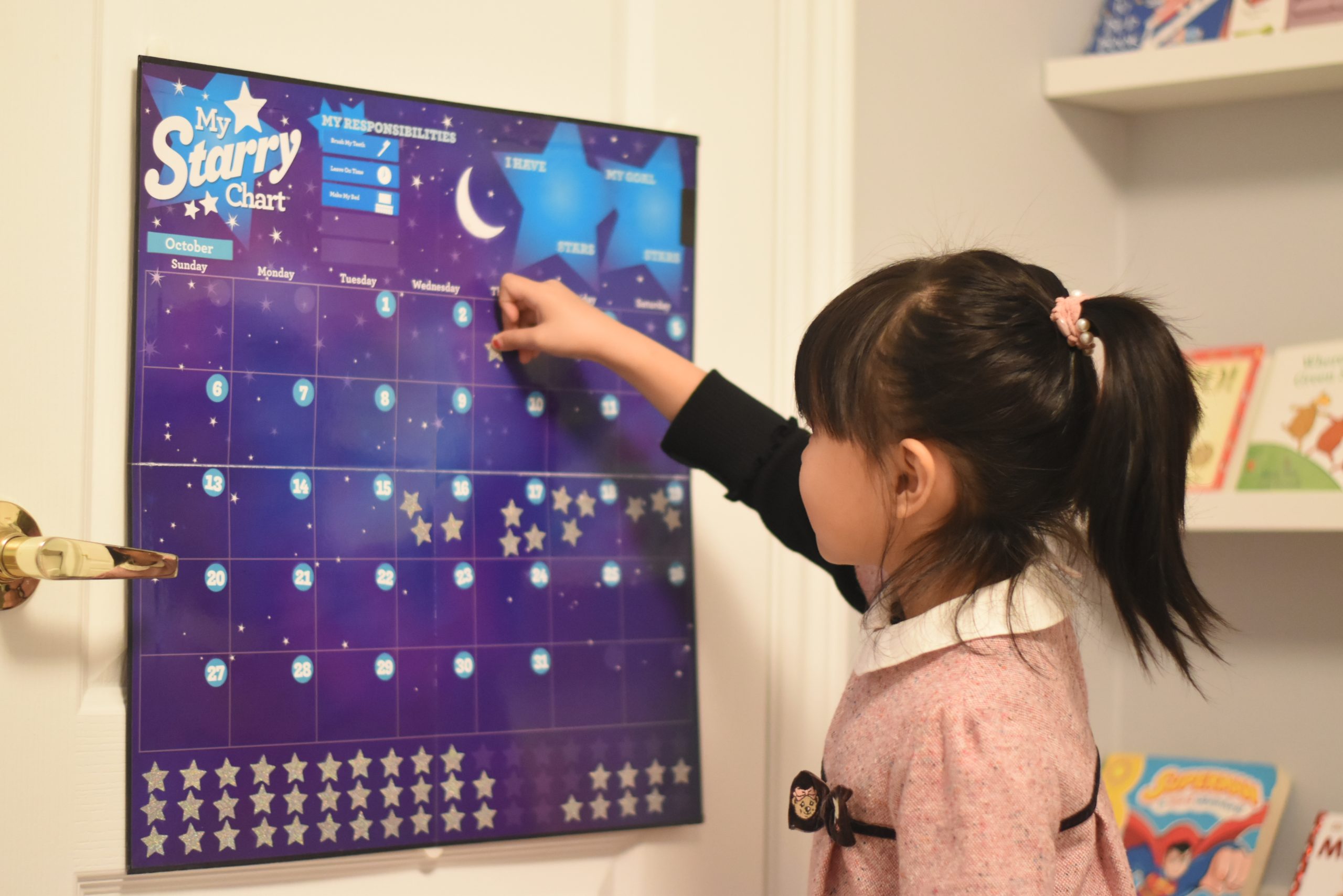
Most parents are not strangers to offering their kids rewards for completing their chores.

If you want your son or daughter to do the dishes, take out the trash and generally be a “good boy or girl”, promise to buy them a new iPad beforehand.
It’s only fair.
Most parents are not strangers to offering their kids rewards for completing their chores.
And rewards are often warranted.
However, there’s growing concern among psychologists that rewarding children for completing household chores can backfire and have damaging consequences.
But what about the parents who notice things get done when a shiny new Apple product is on the table?
Good behaviour: should it be rewarded or expected?
This question does create a current divide in thought for many parents. If you’re like the majority of parents out there, you’re probably torn.
You may wonder if you should give gifts for good behaviour or avoid the practice altogether.
So what do you do?
Arguments for Rewarding Good Behaviour
Rewards work.
It’s safe to say that just about every kid out there will get in the habit of completing chores if they receive a regular supply of rewards.
First and foremost, rewards encourage your kids to keep on practicing good behaviours. Rewards signal approval, and when a child recognizes your positive response to their behaviours, they’ll likely repeat that behaviour in the future.
Another reason to reward your kids’ good behaviour is that doing so increases their self-esteem.
Just think about the power of simple phrases such as “good job” or “nice work”.
When a child hears these words, their physical demeanour and posture can change. Frowns turn into smiles and slumping shoulders pull back confidently.
The other benefit of giving rewards to your kids for completing chores and good behaviours is immediate gratification.
You will be happy because your child was compliant. Your children will be happy because they will get to enjoy the fruits of their labour. It’s a win-win for all.
But not everyone agrees with rewarding good behaviour.
Arguments for NOT Rewarding Good Behaviour
A number of psychologists, therapists, and parents alike are team “anti-rewards”.
The parents in this group will say that constantly offering rewards for good behaviour and completing chores is a quick and easy way to spoil kids.
Researchers even offered scientific insights as to how constant rewards can actually harm kids.
One study uncovered unexpected findings when it comes to rewarding good behaviour.
Researchers found that when children were over-rewarded for sharing, they eventually chose to share less.
The study involved 48 children, all of which were three-years-old. They were given marbles and then instructed to choose how many marbles they’d share with a puppet.
Throughout the course of one game, it appeared as if a child happened to get three marbles while the puppet only received one. Half of the kids noticed this and gave the puppet a marble without further prompting.
If they didn’t, the puppet said, “I only got one marble”.
Or, “I want to have as many marbles as you”.
Then, if necessary: “Will you give me one?”
The study took an interesting turn. When a child eventually gave a marble to the puppet, some moved on without praise while others received praise.
This included phrases such as: “Oh thank you for sharing a marble with me!”
The reward? Either a balloon, a bracelet or an animal eraser.
Time passed and the kids were tested again over the course of three separate, yet related games. And the results were astonishing:
“Children continued to equalize an unfair outcome after having experienced praise or a neutral response from the favoured play partner but shared less often after they had received material rewards,” the paper writes.
Essentially, the kids became less empathetic and shared less.
What the study revealed was this: it wasn’t that the kids didn’t enjoy the praise, it was that extrinsic motivation (being rewarded) alone wasn’t strong enough to maintain their empathy.
In another example, in an article published in The Atlantic, contributor Erica Reischer provided an example of this phenomenon that’s “against the chore chart”.
One mother she spoke with mentioned that her 8-year-old son asked, “What will you give me?” after she asked him to clean up a spill.
Another couple that Reischer spoke to admitted that their daughter said, “No thanks” after being asked to help clean up the kitchen after dinner.
hese experiences seem to support the research that rewarding good behaviour can have the opposite effects that parents hope for
So what does that mean for parents who find it a challenge to motivate their kids to complete their chores?
Our Thoughts
We’ve presented two opposing sides of the argument for rewarding good behaviour so far.
On one hand, you have those who are avid supporters of reward systems while on the other, those who believe that they do more harm than good.
Both sides have valid points, thus complicating the choice for parents. But the reality is that there is a middle ground.
Parents can use chore charts to encourage children to take up responsibilities willingly.
Not just for rewards.
Like many important things, using a chore chart requires moderation.
Parents should use chore charts as a tool to help their kids develop skills such as goal-setting, organization and time management.
They should use the chart as a tool to help kids simplify their tasks, make it easier to keep track of their progress and set new expectations.
It should not be used merely as a display board for reward stickers. It’s important for parents to separate chore charts from the completion of chores themselves.
Maintaining a Balanced View of Chore Charts
Admittedly, most of us can fall into the pattern of awarding gifts for good behaviour.
But, it’s important to remember that kids must learn to do chores, not for the rewards, but for the skills they are nurturing for adulthood, like work and school.
A chore chart is merely a tool that aids in this nurturing.
Another tool that as busy parents in a fast-paced world, perhaps working and being a mom or dad at the same time, we may need to organize and reinforce our child’s development.
It can help us organize and keep track of the positive parenting guidelines we try to maintain for our children, but not fix or resolve less-than-ideal behaviour.
My Starry Chart is backed by science, but it’s not magic!
Using tools and assets to feel like we are being a better parent can never be a wrong choice.
And telling one parent to another that one resource is better than another can’t be right, either.
Communicate with your partner, your child, and even other parents in a way that is a dialogue.
Talk about how one strategy is working over another.
Compare notes.
You might find your methods of parenting don’t steer in only one direction, but is actually a larger road with turns and curves – a need to maneuver a certain way, over another, depending on the situation.
A larger journey that can’t be settled in only one blog post.
